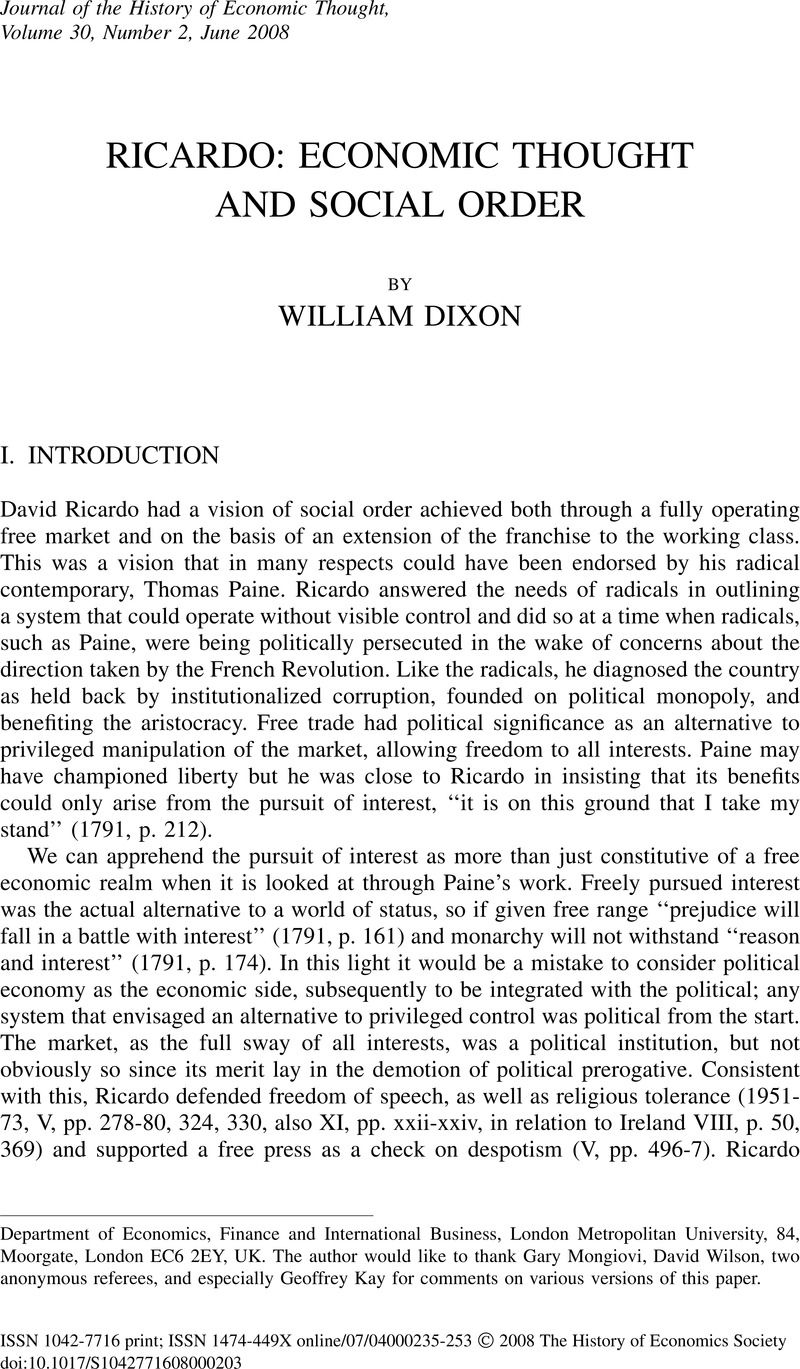Crossref Citations
This article has been cited by the following publications. This list is generated based on data provided by Crossref.
Wilson, David
and
Dixon, William
2009.
Performing Economics: A Critique of ‘Teaching and Learning’ * *We would like to thank participants at the workshop: Pluralism in economics: rethinking the teaching of economics (City University London, 18 October 2008), and especially Terrence McDonough, for their comments on an earlier draft of this paper. Thanks are due also to participants at the 2008 European Association of Evolutionary Political Economy Conference:‘Labour, Institutions and Growth in a Global Knowledge Economy’ (Rome, 6–8 November 2008), and to Paolo Saviotti in particular, for their comments on a further revision.The comments of three anonymous referees of this journal, plus those of the editor of this special issue,Andy Denis, led to yet further improvements. Our biggest debt, though, is to our friend and colleague,Alan Oattes, who made characteristically detailed and perceptive comments on the paper whilst giving us access to his unpublished work on an early EC-funded, technology-driven, distance learning project..
International Review of Economics Education,
Vol. 8,
Issue. 2,
p.
91.
PRATT, DAVID
SCHOFIELD, P. R.
HEALEY, JONATHAN
KIRBY, PETER
BRADLEY, KATE
TAYLOR, JAMES
and
BROWNLOW, GRAHAM
2010.
Review of periodical literature published in 2008.
The Economic History Review,
Vol. 63,
Issue. 1,
p.
187.
DEPOORTÈRE, CHRISTOPHE
2013.
WILLIAM NASSAU SENIOR AND DAVID RICARDO ON THE METHOD OF POLITICAL ECONOMY.
Journal of the History of Economic Thought,
Vol. 35,
Issue. 1,
p.
19.
Dixon, W.
and
Wilson, D.
2014.
Political economy and the social disciplines: the modern life of Das Adam Smith Problem.
Cambridge Journal of Economics,
Vol. 38,
Issue. 3,
p.
623.
Depoortère, Christophe
2015.
TWO UNPUBLISHED LETTERS BY DAVID RICARDO ON A MONETARY PAMPHLET BY SAMUEL TERTIUS GALTON.
Journal of the History of Economic Thought,
Vol. 37,
Issue. 3,
p.
341.
Ruellou, Thomas
2017.
Defending free trade after physiocracy: On Dugald Stewart's architectonic of passions, reason and Providence.
The European Journal of the History of Economic Thought,
Vol. 24,
Issue. 4,
p.
742.
Vercelli, Alessandro
2017.
Crisis and Sustainability.
p.
31.
Madarász, Aladár
2018.
A „túl elméleti” tőzsdeügynök: David Ricardo és az Alapelvek kétszáz éve.
Közgazdasági Szemle,
Vol. 65,
Issue. 5,
p.
449.
Bludova, Tatiana
Fedorova, Oksana
and
Khudyakova, Tatyana
2018.
Leadership for the Future Sustainable Development of Business and Education.
p.
299.





